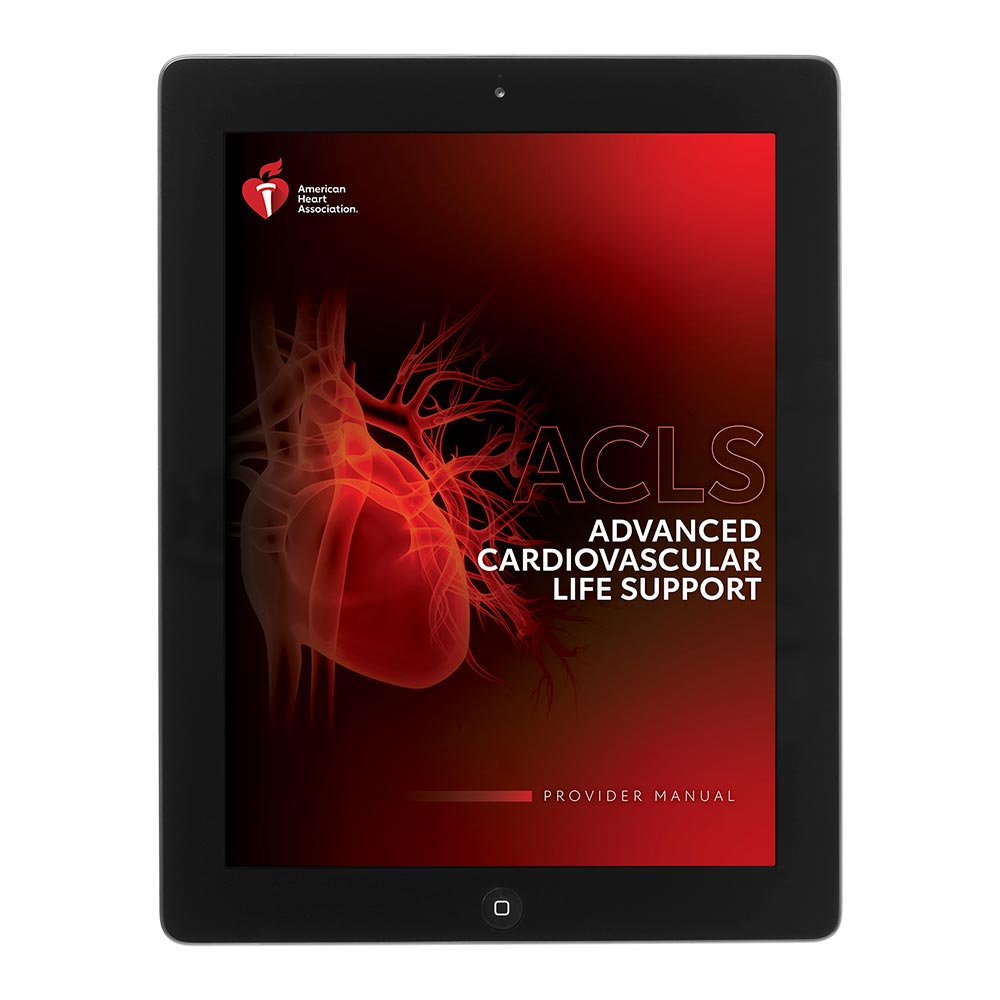Lifework Education
AHA 2020 ACLS Provider eManual (Digital)
Couldn't load pickup availability
This product is non-returnable.
Teaches the importance of preventing cardiac arrest, high-performance teams, continuous high-quality CPR, systems of care, recognition and intervention of cardiopulmonary arrest, post-cardiac arrest care, acute dysrhythmias, stroke, and acute coronary syndromes (ACS).
Updated to reflect new science in the 2020 American Heart Association Guidelines for CPR & ECC, as well as the 2019 Update to the 2018 ASA Ischemic Stroke Guidelines.
This course is designed for healthcare professionals who direct or manage cardiopulmonary arrest or other cardiovascular emergencies; personnel in emergency response, emergency medicine, intensive care, and critical care units; physicians, nurses, and paramedics; and others who need an ACLS course completion card for job or other requirements.
Course contents:
- After completing the course, students should be able to:
- Define systems of care
- Apply the BLS, Primary, and Secondary Assessments sequence for a systematic evaluation of adult patients
- Discuss how the use of a rapid response team (RRT) or medical emergency team (MET) may improve patient outcomes
- Discuss how the use of a rapid response team (RRT) or medical emergency team (MET) may improve patient outcomes
- Discuss early recognition and management of ACS, including appropriate disposition
- Discuss early recognition and management of stroke, including appropriate disposition
- Recognize bradycardias and tachycardias that may result in cardiac arrest or complicate resuscitation outcome
- Perform early management of bradycardias and tachycardias that may result in cardiac arrest or complicate resuscitation outcome
- Model effective communication as a member or leader of a high-performance team
- Recognize the impact of team dynamics on overall team performance
- Recognize respiratory arrest
- Perform early management of respiratory arrest_
- Recognize cardiac arrest
- Perform prompt, high-quality BLS including prioritizing early chest compressions and integrating early automated external defibrillator (AED) use
- Perform early management of cardiac arrest until termination of resuscitation or transfer of care, including immediate post–cardiac arrest care
- Evaluate resuscitative efforts during a cardiac arrest through continuous assessment of CPR quality, monitoring the patients physiologic response, and delivering real-time feedback to the team
Content cannot be printed.
Redeem your Access Code at eBooks.Heart.org
Still unsure how to view your new eManual? Please visit here to learn more.
Please allow up to 24 hours to receive this digital product.


